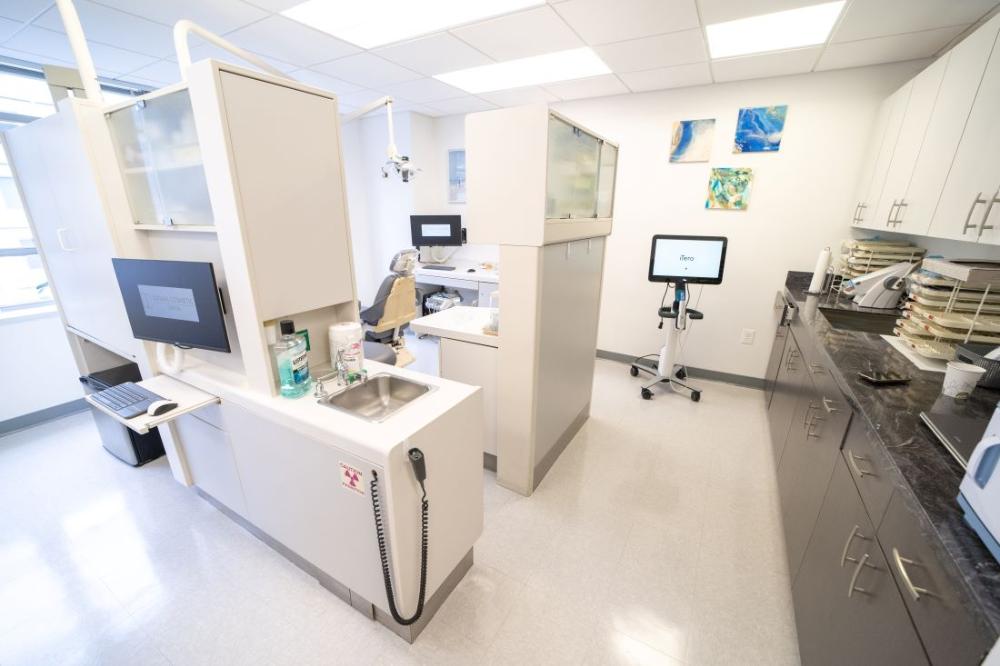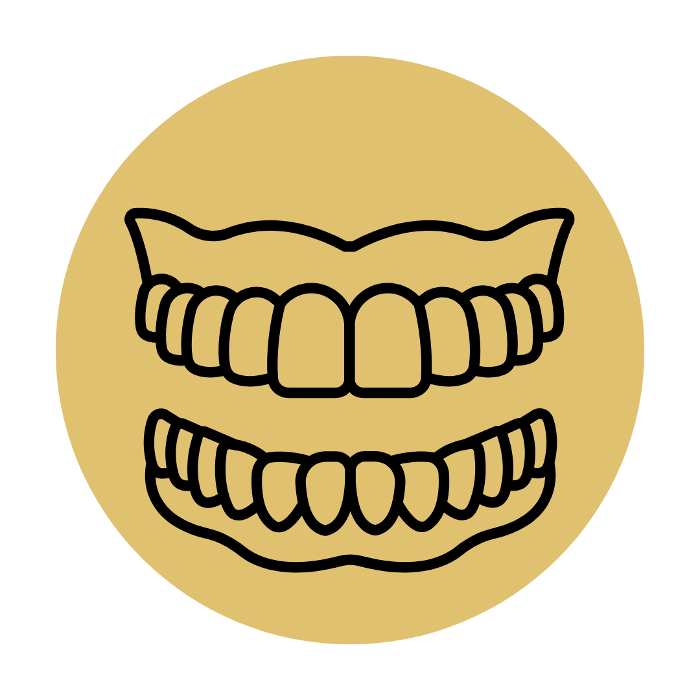TMJ & Bruxism Treatment
Do you experience frequent jaw pain, headaches, or difficulty chewing comfortably? These are all symptoms of a problem with your TMJ or temporomandibular joint.
Many people suffer from such severe TMJ pain that it impacts their daily lives and makes it difficult to function. Dr. Olivia Oriani offers effective treatment that improves TMJ function and relieves your pain so you can enjoy a better quality of life.
What Are TMJ and TMD?
 TMJ stands for temporomandibular joint, which is the joint that allows you to open and close your mouth, chew, talk, laugh, and yawn. When your TMJ doesn’t work properly, we refer to the condition as TMD, short for temporomandibular joint disorder.
TMJ stands for temporomandibular joint, which is the joint that allows you to open and close your mouth, chew, talk, laugh, and yawn. When your TMJ doesn’t work properly, we refer to the condition as TMD, short for temporomandibular joint disorder.
The symptoms of TMD can be painful and disruptive and include the following:
- Jaw pain or tenderness
- Headaches and migraines
- Neck and shoulder pain
- Pain when chewing
- Ear pain or ringing in the ears
- Clicking or popping sounds in the jaw
- Difficulty opening the mouth
- Jaw stuck open or closed (lockjaw)
If you are tired of the limitations of living with TMJ pain, we can help you. Please call our Downtown Washington, DC, dental office to schedule an appointment.
How Does TMD Develop?
To understand how TMD develops, it’s helpful to know how the joints work. The TMJs are hinge joints that connect your lower jawbone (mandible) to your skull.
TMJs are complex joints because they allow movement in three directions: up and down, side to side, and forward and backward. A healthy jaw joint is cushioned by a small cartilage disc that normally absorbs shock and prevents friction with the bone.
Sometimes the disc that cushions become displaced or damaged due to jaw trauma or long-term wear and tear on the joint. Signs of a displaced disc are popping and clicking sounds and pain when opening and closing your mouth.
TMD Risk Factors
Factors that increase your risk of developing TMD include:
- Trauma to the jaw or head
- Arthritis in the TMJ
- Teeth or jaw misalignment
- Excessive gum chewing
- Stress and anxiety
Pinpointing the cause of TMD can be challenging, and Dr. Oriani uses her years of experience, a comprehensive exam, and diagnostic x-rays to determine the most appropriate treatment.
What Is Bruxism?
Bruxism is unconscious grinding or clenching of teeth that occurs when you are stressed or anxious but also commonly occurs during sleep. Repeated clenching and grinding puts excessive pressure on the teeth, jaw muscles, and TMJ, leading to a variety of oral health problems.
Some common signs of bruxism that you and your dentist may notice include the following:
- Chipped or cracked teeth
- Worn tooth enamel
- Tooth sensitivity
- Jaw pain or soreness
- Headaches or earaches
Treatment Options for TMD and Bruxism
There is no one-size-fits-all solution for TMJ pain, TMD, and bruxism. It’s often a combination of treatments that will relieve your discomfort, and Dr. Oriani will work with you to determine what’s right for you.
Custom-Fitted Nightguards
One approach that works well for many is a custom nightguard. The appliance looks like a mouthguard and is customized to fit comfortably over your upper teeth while you sleep. The guard minimizes the effects of teeth grinding by acting like a cushion between your upper and lower jaw. This minimizes stress on your TMJ, giving it time to rest and recover during sleep.
Lifestyle Changes
Relief may be as simple as making easy lifestyle changes like stress reduction techniques like yoga and meditation. You can also avoid chewing gum or eating hard foods that aggravate the TMJ. Applying ice or heat to the area can also help minimize soreness.
Other TMD Therapies
In some cases, TMD treatment involves addressing the underlying cause of disc displacement. Other therapies include pain management, physical therapy, and jaw exercises to strengthen the joint and promote healing.
Many patients benefit from medications like muscle relaxers and anti-inflammatory drugs. If Dr. O thinks you can benefit from this approach after evaluating your needs, she will consult your primary care doctor.
Don’t Suffer Another Day with TMJ Pain
You can experience relief and significantly improve your oral health, comfort, and quality of life with proper treatment for TMJ pain, TMD, and bruxism. Call our Washington, DC, dental clinic to take the first steps toward relieving your TMJ pain.

